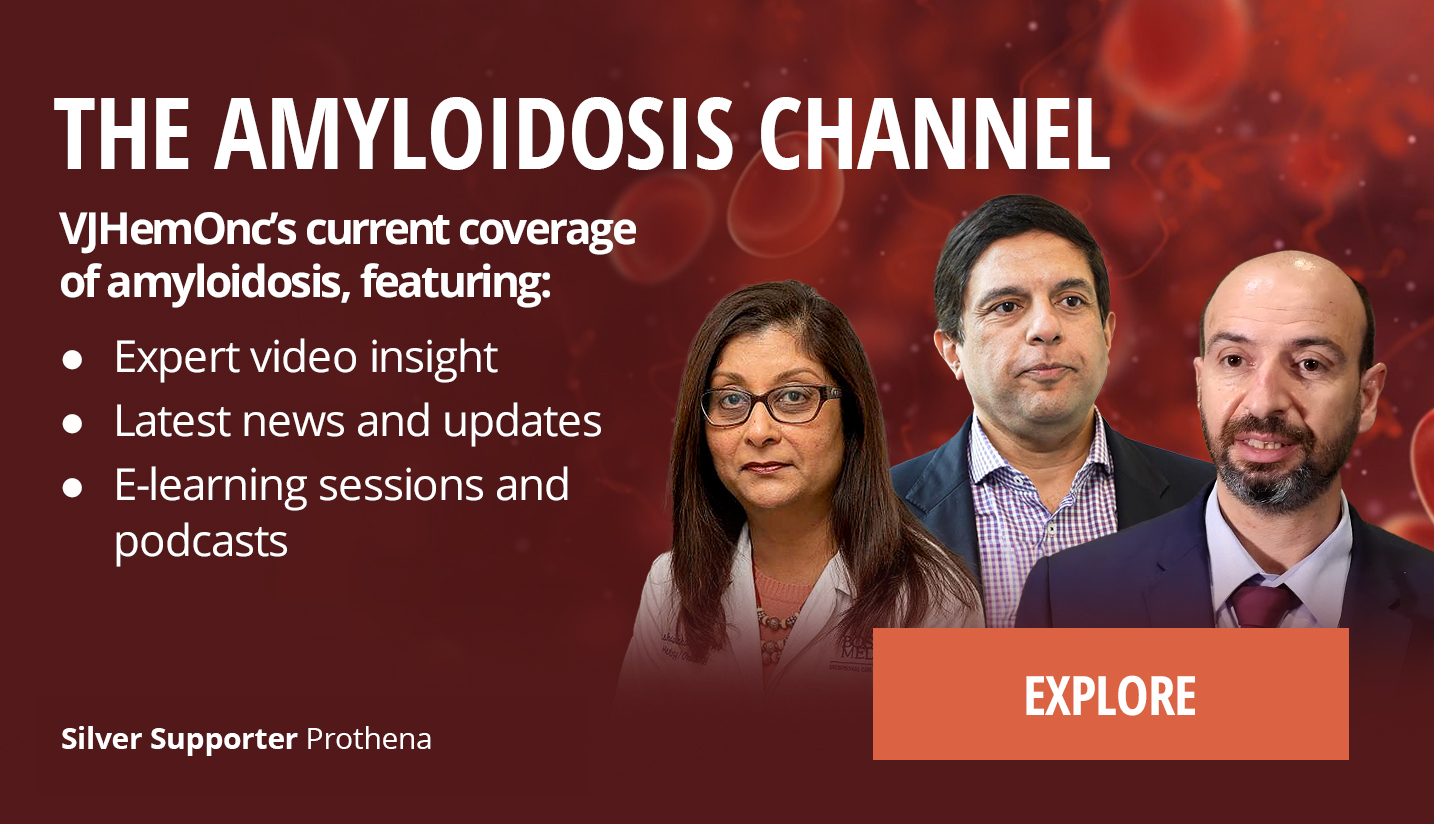Our approach to the treatment of newly diagnosed AL amyloidosis at MD Anderson is really to give the standard of care of daratumumab-CyBorD, which has been now established as a standard of care for newly diagnosed light-chain amyloidosis based on the Phase III ANDROMEDA study. And there is updated data presented at this past year’s ASH meeting, which really demonstrated that not only does overall response rate, complete hematologic response rate, and organ response rates are better with Dara-CyBorD versus CyBorD, but now we see improvement of major organ deterioration progression-free survival and overall survival with Dara-CyBorD versus CyBorD...
Our approach to the treatment of newly diagnosed AL amyloidosis at MD Anderson is really to give the standard of care of daratumumab-CyBorD, which has been now established as a standard of care for newly diagnosed light-chain amyloidosis based on the Phase III ANDROMEDA study. And there is updated data presented at this past year’s ASH meeting, which really demonstrated that not only does overall response rate, complete hematologic response rate, and organ response rates are better with Dara-CyBorD versus CyBorD, but now we see improvement of major organ deterioration progression-free survival and overall survival with Dara-CyBorD versus CyBorD. So this has really established Dara-CyBorD as a standard of care for newly diagnosed light-chain AL amyloidosis.
And on the relapsed/refractory end, there really isn’t a standard of care for relapsed/refractory AL amyloidosis currently in 2025, and we often borrow agents that might be effective in multiple myeloma and use these drugs for light-chain amyloidosis. But I would say that there’s several emerging drugs that have shown a lot of promise in this area. And I think some things I’m really excited about is the use of T-cell redirecting therapies, particularly BCMA bispecific T-cell antibodies for relapsed/refractory light-chain amyloidosis. And these drugs have a very effective way of decreasing light chain levels, which is really important for light-chain amyloidosis. And so now there are several drugs, BCMA bispecific T-cell antibodies, that we use currently in multiple myeloma, that are currently under clinical investigation for light-chain amyloidosis.
This transcript is AI-generated. While we strive for accuracy, please verify this copy with the video.















